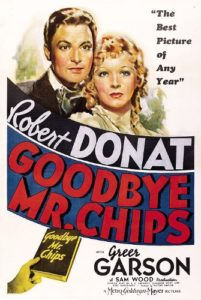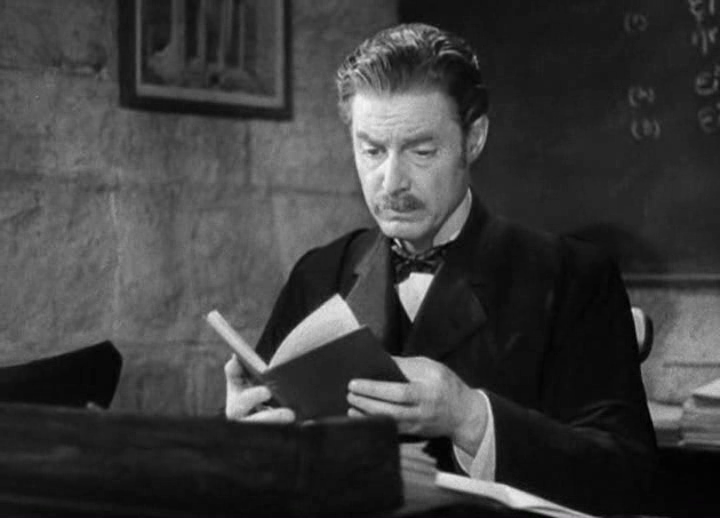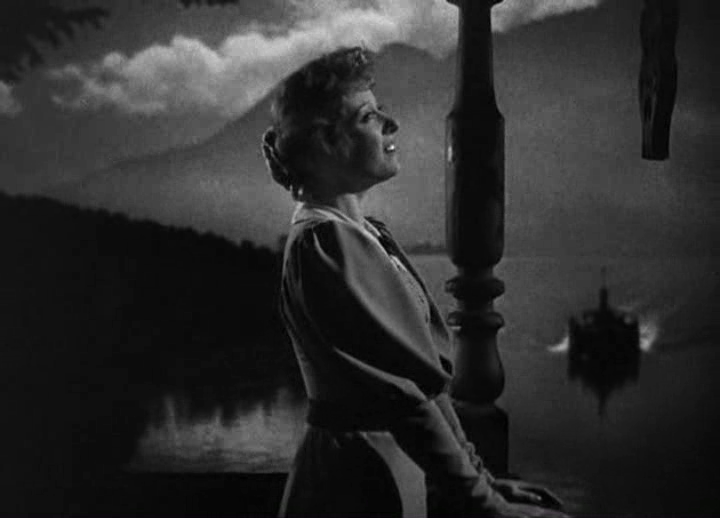Goodbye, Mr. Chips (1939)
“I don’t see how you could ever get old, in a world that’s always young.”
|
Synopsis: |
|
Genres, Themes, Actors, and Directors:
Review: Indeed, while Garson isn’t on-screen for much of the movie, her presence is vital to the film’s success, and it’s easy to see why this breakthrough film helped make her a star. I wish her character would (could) stick around for longer, since their romance is truly charming, and it’s interesting to see the effect of a young woman on the all-boys campus. I’m less of an overall “sucker for movies with nice schoolteachers” than Peary, who points out his particular fondness for Chips, a teacher who “didn’t pull rank on students” and “cared about their welfare and stuck up for them.” He applauds Donat’s willingness to apologize to his students “for mistakenly disciplining them at an inopportune time”, and argues that a boy’s threat to “kill the headmaster” if he “says another word to Chips” shows “that during Chips’s many years at Brookfield he earned a whole lot more than the boys’ friendship”. He notes that “Donat, a great actor, makes us see why these kids would feel such love for this special individual” — and I agree Donat’s performance makes this one worth a look, even if it’s not a personal favorite. Redeeming Qualities and Moments: Must See? Links: |




One thought on “Goodbye, Mr. Chips (1939)”
A once-must – for its place in cinema history and for the two lead performances. As per my post in ‘The ’40s-’50s in Film’ (fb):
“Have you never been in love, Mr. Chipping?”
‘Goodbye, Mr. Chips’ (1939): I’d only seen this film once before but this second viewing brought the wonderful reminder of what a fine actor Robert Donat was. It’s certainly a shame that he hasn’t a larger number of high-profile films to his credit. However, not long before making this film, he had the lead in one of Hitchcock’s best, ‘The 39 Steps’ (quite well-matched by Madeleine Carroll) – and he had just been Oscar-nommed for his performance opposite Rosalind Russell in ‘The Citadel’. For ‘GMC’, Donat beat out Clark Gable (for ‘Gone With the Wind’). I suppose it’s arguable that Gable gave the better performance (it’s likely the best in his career) and that Donat received his prize as a ‘sentimental favorite’. But I’d have to conclude that both men are equally good, respectively. And, having now seen ‘GMC’ again, Donat’s work as Chips holds a lot more depth and subtlety to it than one might expect. He is also playing opposite a radiant Greer Garson, of course – and theirs is one of the loveliest screen pairings in cinema history; one simply can’t get enough of watching the two of them together and the charm they share. I’d forgotten that ‘GMC’ is a completely episodic story – it catches decades of large and small moments that wash over the title character as he is looking back on his life. Overall, it’s an elegant film which, if sad on occasion, refuses to give way to melancholy. It encourages the viewer to maintain an attitude of doing one’s best – no matter what may come.